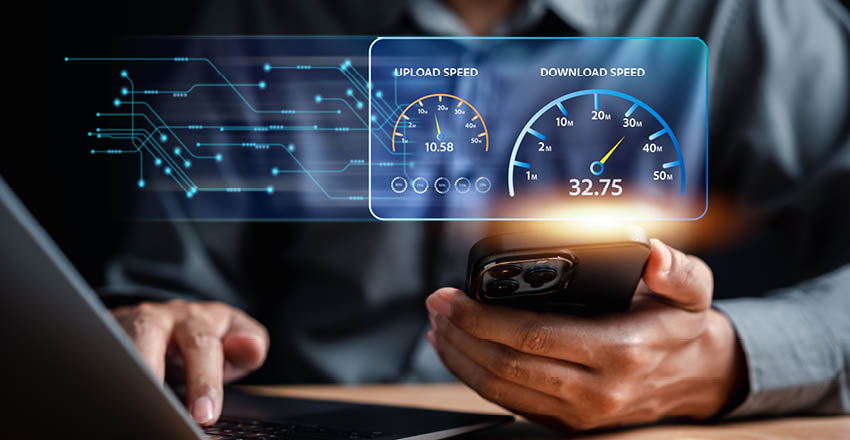
What is internet throttling and how to avoid it
Millions of broadband customers are not receiving the broadband speeds they pay for. And it’s all because of a sneaky little tactic called ‘throttling.’ It robs you of data, slows down your internet, and forces you into paying for a substandard service.
Here’s everything you need to know about internet throttling, including how to find the AltNet providers that will never deliberately slow down your connection.
What is internet throttling?
Throttlingis when your internet service provider deliberately restricts your internet bandwidth or speed without telling you.
Is internet throttling legal?
Internet providers have the right to throttle their own networks. And they don’t have to tell you about it. It says so in those complex terms and conditions that nobody reads when signing a new broadband contract.
Why do internet companies throttle?
Throttling regulates network traffic and clears up any congestion. In many cases, it’s an essential part of maintaining a reliable network that doesn’t crash or run painfully slow.
Providers also throttle users when they reach a data usage limit within a fixed period. It ensures customers only get the data or internet access they’ve paid for.
Throttling the internet isn’t always about fair bandwidth distribution. Some providers throttle specific websites or applications to discourage you from using them. Your service provider might have a contract with Netflix to prioritise its streaming services over rivals like Amazon Prime or Disney+. In rare cases, internet providers will throttle certain services or websites for political reasons. It might throttle websites it deems as promoting dangerous ideas, misinformation, or political extremism.
Can providers really do this?
UK internet providers are legally obliged to operate in line with net neutrality. Net neutrality, also known as ‘open internet’, is the principle that you control what you see and do online, not the broadband providers
Net neutrality regulations state that providers must not block access to, slow down (‘throttle’), or discriminate between internet traffic on its network. And it must not manage its internet traffic to gain a commercial advantage.
But caveats to net neutrality laws give providers the right to manage internet traffic for legal, maintenance, security, and emergency reasons. How neutral internet services seem to be largely depends on how internet providers interpret their right to throttle.
When do service providers throttle?
Internet providers throttle during peak usage hours. The UK’s internet rush hours are between 7 pm to 11 pm. There’s also a sharp rise in traffic between 7 am to 9.00 am.
If you want the digital highways all to yourself, you’ll have to stay up until 4.00 am. Alternatively, you can set an alarm clock, start downloading the latest in-demand Xbox or Playstation release while the rest of the gamers are still snoozing, and then go back to bed. The game will be ready to play when you wake up a few hours later.
Providers may also start throttling your service if you’re gobbling up large amounts of data. This is why your internet can slow down when playing video games online or downloading large files.
What internet companies throttle the most?
It’s difficult to find exact data on throttling rates and frequency. But one thing is for sure: many of the UK’s biggest internet providers throttle their customer’s internet on a daily basis.
The ones that say they don’t ‘throttle’ simply call it something else, like ‘fair usage’ or ‘network management.’ The fair usage policy for Sky’s Broadband Connect package explains that during peak hours, connections can be 90% slower for customers downloading large files or using services that require lots of bandwidth, such as YouTube. That doesn’t sound very fair, does it?
How to avoid throttling?
Private VPNs and adjusting your internet usage times can help you avoid throttling. But neither is particularly convenient. Plus, you’ll have to pay a monthly subscription on top of your broadband bill for a VPN service.
The best way to always get the speed you pay for is by signing up to an AltNet that never (ever) throttles.
6Ginternet, HS4 broadband, and MaxFibre are three AltNet providers in the North West that guarantee their internet speeds 100% of the time. It means you can stream, game, work, and download at the same speeds whenever you decide to go online.
AltNets put and keep you in charge of your internet.
Now that is fair!
Share this article
Read more like this
 Broadband for Gamers: How t...
Broadband for Gamers: How t... Optimise your gaming experience with our guide to finding the best broadband […]

